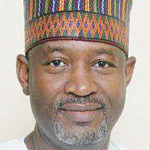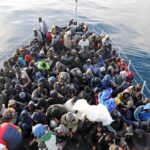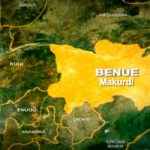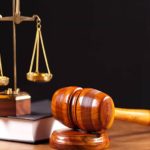Governor Emmanuel to Akwa Ibom People: ‘You Are in Safe Hands’
 By the end of November, last year, Governor Udom Gabriel Emmanuel of Akwa Ibom State joined his colleagues to mark six months in office. The Governor did not roll out the red carpet or serenade himself in buntings and banners to mark the landmark, instead he turned it to a moment of introspection, reflection and evaluation of the journey so far while outlining with clear signpost the prognosis of his administration and those things that define his leadership style. Political Economist was in Uyo and captured the mood, the mind and the viewpoints of the Governor on a rare mission to galvanise his people to greater life attainments.
By the end of November, last year, Governor Udom Gabriel Emmanuel of Akwa Ibom State joined his colleagues to mark six months in office. The Governor did not roll out the red carpet or serenade himself in buntings and banners to mark the landmark, instead he turned it to a moment of introspection, reflection and evaluation of the journey so far while outlining with clear signpost the prognosis of his administration and those things that define his leadership style. Political Economist was in Uyo and captured the mood, the mind and the viewpoints of the Governor on a rare mission to galvanise his people to greater life attainments.
Your Style of Governance
My style of governance is anchored on good corporate governance. If I have a consultant who is not compliant with any element of corporate governance, I will say no to such consultant. Every government has a face and healthy corporate governance is the face of my government. I set my target, this is my expectation, and this is what I want for my people. It is either you keep it or I fire you. As I employ you I fire you once you don’t meet my expectation. We have done six months. If someone should ask me how it has been, I would say it is a mixed feeling; mixed feeling in the sense that you cannot derive full satisfaction in six months because you’re coming with a whole lot of expectations within the first six months; a lot of distractions and you have to stay focused and a whole lot of trying to share your expectations with people, share values, the style people must adapt, adjust and re-adjust. But by and large, we see all these as an opportunity to serve the people.
The concept of the best governance Nigeria never had is always in my head and I know I have to contend with some forces to achieve that. Be that as it may, we have been able to analyse various issues and progress and so the whole problems I have are the same the country is having and some other European countries of the world today; which is challenges of the world economy.
Challenges of Democracy
As of today there are a lot of challenges in Africa in terms of the economy. Nestle is divesting in so many African countries; it is only in Nigeria that they’re trying to pick up a little. And meanwhile four years ago Africa was the new bride of the emerging market; they came but didn’t see what they expected. Any developing nation that does not have a strong economy is a major challenge to democracy because I believe in the dividend; from that dividend you declare your profit. So if you do not have a strong-based economy it poses a lot of challenges to democracy, today we’re faced with a whole lot of such challenges. Meanwhile the cost structure that we’re running is the same that was set up when the price of oil was $140pb, rather than that cost structure going down, it’s even increasing. We however need some form of creativity and ingenuity to be able to make some impact.
Healthcare
Nigeria is the only country where in virtually all the communities, primary healthcare is almost non-existent. In Akwa Ibom, we have tried to change the structure and style of secondary healthcare; we’re trying to see how we can outsource some of those facilities to private individuals; let the services be available then we can discuss cost. Cost is not an issue, it is to save life first; we try to do that which is why we’ve moved into the primary area of gynaecology and paediatrics in our hospitals which forms the best of gynaecology in the South-South. We’re trying to give a face to hospitals and create impact on our people.
I opened a residential estate for experts that will be coming into the state to carry out surgeries. The residential estate is comparable to any residential estate you can find anywhere else in the world. We need to transfer knowledge. We have done a lot of tumour operation, and we have the quality of experts and equipment here; managed by experts from the US and UAE; so in terms of healthcare we’ve kick-started. The life of any person is as important as the life of a governor; so we don’t want to lose any person.
Education
For schools; it is the responsibility of the state government to cater for secondary schools. Primary schools are purely under Universal Basic Education (UBE), so anything that the state government does there is purely intervention. But today you drive round my state and you see the primary schools well taken care of; they’re not federal government models but 100 per cent purely state government. The impact is so much on our finances especially now that there’s scarcity of funds. If we check what we have done in schools in terms of infrastructure it will amount to N1.5bn; this is value for money. We pay all teachers their salaries, both in the primary and secondary. We give them incentives and allowances. I do this and I set a target for them that if as at 2014, our past record for JAMB and WAEC was 52 per cent please I need nothing less than 60-70 per cent in the next one year. I’m setting up a unit of measure to make sure that they achieve that. In almost all the zones we have the Special Assistant to the Governor on Education Monitoring independent of Ministry of Education. What they do is that they go round the schools to see if they’re performing up to standard. And then during school hours if we see a child wondering on the road and we find out the school that child is supposed to be going to, that principal gets punished.
The Economy
In terms of the economy, we have just discovered that there are three basic things. Nigeria and indeed Africa is the only place you see somebody that after having held an ‘exalted office’, by the time the person leaves what happens? The man is broke because while he was in office all the money he made, he used it to buy cheap popularity. We’re trying to build an economic base for our state. There are three in-lets towards building an economic future of a country; air, road and water. And luckily enough we have 129km of shoreline. We want to build an economy in which one day the fancy of carrying our briefcase to Abuja to go and queue might be a thing of the past. Nobody ever gave it a thought that one day oil price will be $40pb and in some cases no buyers.
We started a technical committee because we don’t want to be bogged down by bureaucracies of our ministries and civil service, so we decided to set up committees to handle agriculture and food technology solutions and we discovered that we have one of the best soils on planet earth that we can grow things round the clock. So what we did was we launched a planting season in October; I can’t start using money to import rice and garri, but we can create employment by growing and processing food. We’re trying to get very simple basic things on the table like rice and garri and then use the other cash crops to actually create some jobs. We’ve done that in terms of palm plantation and we’re also looking at coconut which has 365 ways you can use it, so we want to tap into that.
Our focus is actually to see what we have in the oil and gas that we can use to attract people and foreign direct investment. In an area like this almost every state has a petrochemical so we’re partnering with the private sector to set up a petrol chemical plant here. We’re in talks now with some people to see how we can encourage them to invest.
Maximising the Waterways
Cargo service is one of the major projects we want to have. Warri has a license, so we want to develop that area. We want to create a logistics service that will be a hub for the entire area especially in oil and gas. What we want to give them here is competition in terms of air and water. We’ve gotten a very good response from investors; what do they want? They want transparency and accountability; they want to see transparency in governance. If we can get this sort of response at the state level we wonder what will be if it’s balanced at the centre.
Create a hub at the centre for agriculture, where you’ll have e-wallet, savings etc. If the centre creates these then we can have a turn around. We’re actually looking at establishing a major economic base. Every road we have listed in the past six months has an economic importance; either it’s taking you to some of the oil and gas zones that we’re establishing etc. We came here to serve and we’ll give exceptional service as our bond. We’ll create access to where we have economic values.
Public Orientation
These past six months, one remarkable thing we have done is to awaken the sense of pride, self-worth and self-believe in the people. Using the Dakkada (Rise Up) philosophy, we have aroused a new sense of value in the Akwa Ibom people. We have put in them a consciousness that they can do the extraordinary, they can out-perform their peers in any field from education to sports to technology. Ours as a government is to provide the right environment that would motivate the Akwa Ibom person to rise to the top and we are beginning to see results propelled by this new movement.
My joy is that people are beginning to see where we are going and they are appreciating it by showing love and commitment to me and my government. Where we are now, I can confidently say that the ship has set sail in Akwa Ibom and this ship will take the people very far. Akwa Ibom is in safe hands.








